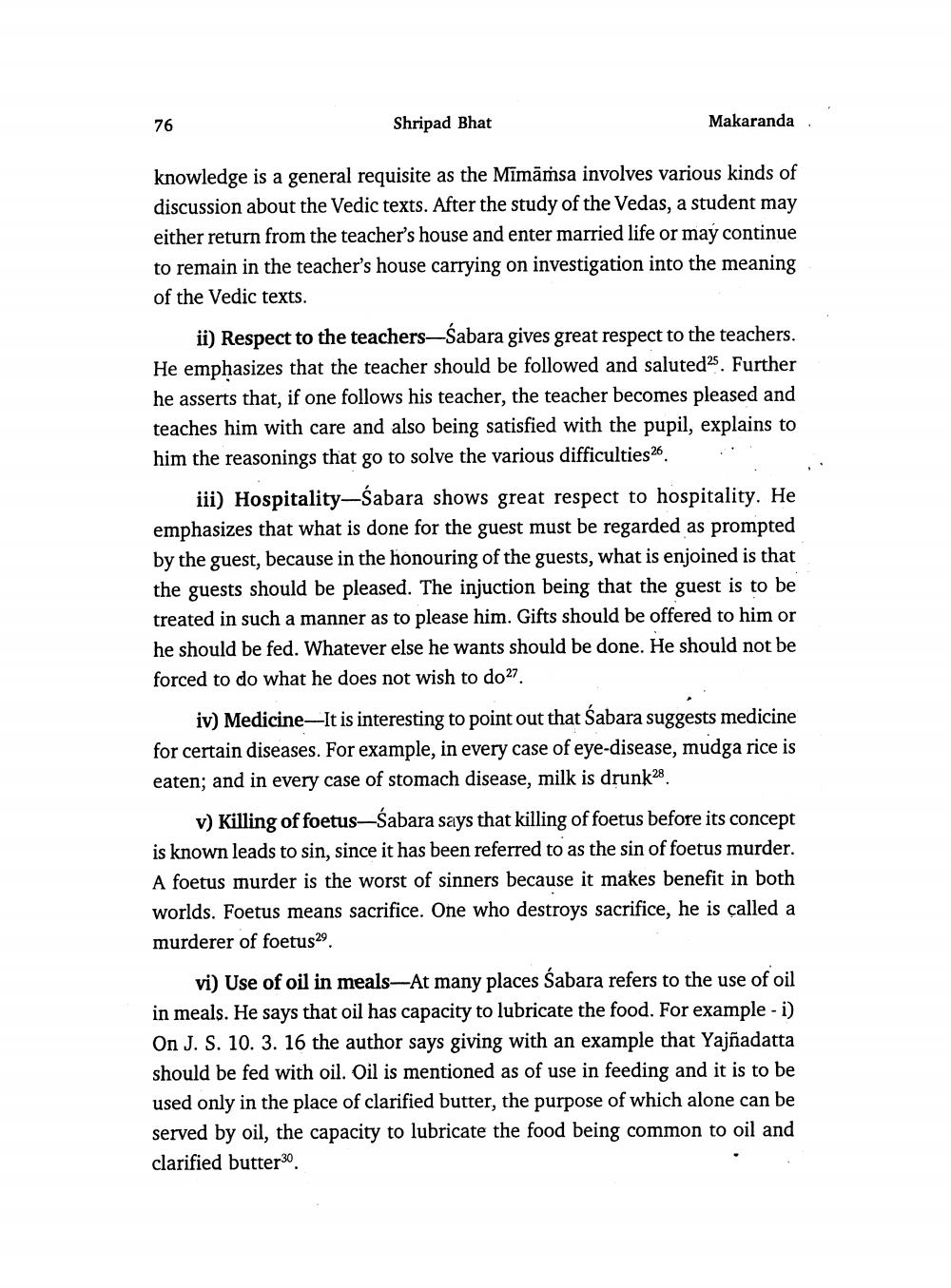________________
76
Shripad Bhat
Makaranda
knowledge is a general requisite as the Mīmāṁsa involves various kinds of discussion about the Vedic texts. After the study of the Vedas, a student may either return from the teacher's house and enter married life or may continue to remain in the teacher's house carrying on investigation into the meaning of the Vedic texts.
ii) Respect to the teachers—Sabara gives great respect to the teachers. He emphasizes that the teacher should be followed and saluted25. Further he asserts that, if one follows his teacher, the teacher becomes pleased and teaches him with care and also being satisfied with the pupil, explains to him the reasonings that go to solve the various difficulties 26 :
iii) Hospitality-Sabara shows great respect to hospitality. He emphasizes that what is done for the guest must be regarded as prompted by the guest, because in the honouring of the guests, what is enjoined is that the guests should be pleased. The injuction being that the guest is to be treated in such a manner as to please him. Gifts should be offered to him or he should be fed. Whatever else he wants should be done. He should not be forced to do what he does not wish to do 27.
iv) Medicine-It is interesting to point out that Śabara suggests medicine for certain diseases. For example, in every case of eye-disease, mudga rice is eaten; and in every case of stomach disease, milk is drunk28.
v) Killing of foetus—Śabara says that killing of foetus before its concept is known leads to sin, since it has been referred to as the sin of foetus murder. A foetus murder is the worst of sinners because it makes benefit in both worlds. Foetus means sacrifice. One who destroys sacrifice, he is called a murderer of foetus29.
vi) Use of oil in meals-At many places Sabara refers to the use of oil in meals. He says that oil has capacity to lubricate the food. For example - i) On J. S. 10. 3. 16 the author says giving with an example that Yajñadatta should be fed with oil. Oil is mentioned as of use in feeding and it is to be used only in the place of clarified butter, the purpose of which alone can be served by oil, the capacity to lubricate the food being common to oil and clarified butter30




